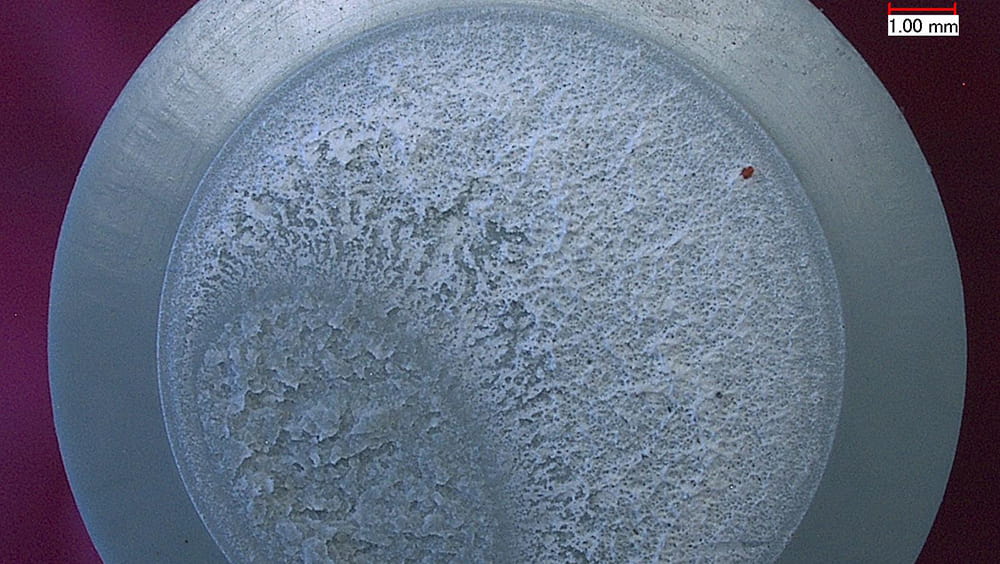SKZ successfully accredited for the cracked round bar test (CRB) according to ISO 18489
In recent months, the testing division of the SKZ Plastics Center, one of the leading accredited testing laboratories in Europe, has added another innovative test method from the field of pipe testing to its portfolio of services: the cracked round bar test (CRB) in accordance with ISO 18489. The method was validated in an extensive round robin test and has now successfully passed the assessment procedure by the German Accreditation Body (DAkkS).

Fracture surface of a test specimen. (Photo: Johannes Englert, SKZ)
New test method to investigate slow crack growth in PE pipes
The new cracked round bar test aims to investigate slow crack growth (SCG) as the main cause of failure in internally pressurized polyethylene (PE) pipes. Carrying out this test is therefore also crucial for determining the service life of pipes. Slow crack growth (SCG) is one of the biggest challenges in the use of polyethylene pipes used for internally pressurized applications such as gas and water supply systems or industrial pipelines. The durability and reliability of these pipes depends largely on their resistance to SCG. The higher the slow crack growth, the longer the pipes can withstand the normal stresses of outdoor use, resulting in significant cost savings and an extended service life. This conserves resources and makes a valuable contribution to sustainability.
The cracked round bar test is characterized by different advantages compared to other test methods:
No influence of environmentally hazardous wetting agents
Unlike some other test methods, the CRB is carried out without the influence of environmentally hazardous and material-altering wetting agents. This ensures that the test results provide realistic estimates of material performance.
Close to application at operating temperatures
The CRB is carried out at near-application operating temperatures of 23 °C, which corresponds to field conditions. In contrast, other test methods often require higher temperatures (e.g. 80 °C), which may not accurately reflect the results.
Fast results
Compared to other test methods such as the FNCT (Full Notch Creep Test) or NPT (Notched Pipe Test), which can take several thousand hours, the CRB provides results in a comparatively short time. A break usually occurs within 24 to 48 hours, which considerably shortens the test duration.
Material ranking and characterization
With the CRB it is possible to rank and characterize PE 100-RC materials. In many tests, modern RC materials led to premature termination after 10,000 hours, which did not provide meaningful results.
"Continued commitment to excellence in materials testing"
"The addition of the CRB test to our testing portfolio is further evidence of our ongoing commitment to excellence in materials testing," says Alexander Ebenbeck, Sales Manager for Testing at SKZ. "We are convinced that the introduction of this innovative testing method will help our customers to make faster and more reliable decisions when selecting suitable PE materials for durable pipe products in the future. We are very proud to have received accreditation from the DAkkS for this."
More about the SKZ testing division

